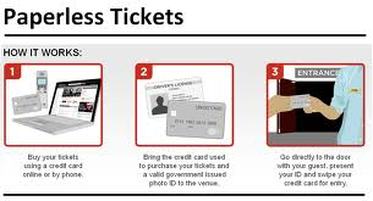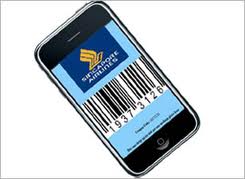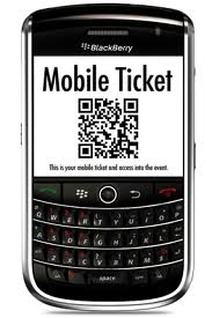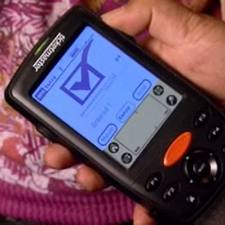 By: Amelia Butterly, BBC Newsbeat reporter Paperless tickets could help combat touts but many venues still do not have the capabilities to support them, say independent music promoters. Although most tickets are sold online, bringing a printed barcode ticket means it is not truly a digital transaction. But one independent promoter Anton Lockwood, who works for DHP, says paperless is not always "practical". "It only works where the cost of introducing the system can be spread over high ticket prices," he said. "The physical design of arenas can make paperless tickets much easier to handle but in club venues, for example, it's more difficult as there isn't usually the space for equipment like electronic turnstiles." Dave Newton of We Got Tickets, an online retailer, believes that the technology has actually made it easier for small venues. "Paperless ticketing has brought the cost down [for smaller venues and promoters] and opened up the option of advanced ticketing," he said. "Resistance is still there at the larger venues because they're used to having people stood on the door ripping tickets." He said: "Following the recent set of dates at The O2 for Robbie Williams, a survey that we [Ticketmaster] completed suggested that 87% were satisfied with their experience of paperless. "Fans agreed that it is the future of ticketing." New technology Other technologies, such as electronic wristbands and smartphone apps, may be the way that paperless ticketing is rolled out across the industry.  Dave Newton thinks that when marketing companies capitalize more on the tagging, social media and promotion capabilities, tickets may go completely digital as a way for them to "capture that data" and create "up-sell opportunities". Technologies are also being developed for when people have actually arrived at the gig venue. One of those includes inaudible frequencies, sounds that can be played out of speakers at gigs that cannot be heard by people but can be picked up by smartphones. Theoretically the noise trigger could then make the smartphone bring up all kinds of content from merchandising or ticket purchase options or play video. New innovations may also change the way people buy tickets in the future and how music fans experience the gig once they are actually there.
0 Comments
Leave a Reply. |
Archives
April 2018
Jude's Korean adventures
 MSTv Host/Producer: Jude Falcon MSTv Host/Producer: Jude Falcon
Alcohol in South Korea All bars and local night establishments are filled to the brim with things you have seen in all other places like Jack Daniels and Jagermeister. However you may spy a little green bottle with Korean writing on it and you may ask what is that? It's called Soju, my friends or 소주 for the Hangil inclined (Korean Language). Soju is a spirit primarily made from rice, barley, potatoes or tapioca and has an average alcohol content of 20% ABV however there are some brands of Andong Soju that are upward of 45% ABV. None the less, they will both get the job done. Soju has a taste very similar to vodka but it is slightly sweeter and easier to consume by itself. Now we get to the matter of cost and availability; however rest assured the answer will be qiute positive. Soju is available all over South Korea from the local convenience store for 1,000 Won = roughly $1 or in a restaurant for 3,000 Won =$3. So these adult treats certainly won't set you back any considerable amount. It alco mixes quite well with beer, cider, and energy drinks. Soju has been around since the 13th century and shows no signs of going anywhere anytime soon. So when you get the chance come on down to the Republic of South Korea and have a shot of deliciousness. Jude Falcon |
©MySceneTV - MSTv Productions, LLC | [email protected] | P 504.491.0254



 RSS Feed
RSS Feed
